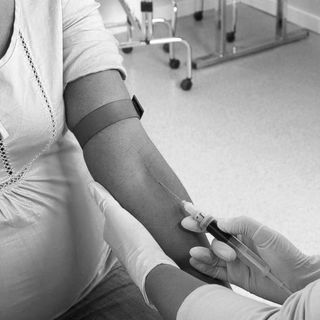
40% of Women Who Commit Suicide Globally Are Indian. Most of Them Are Married.
Is there something about marriage that’s driving Indian women to suicide?

A recently released Lancet Public Health study on suicide has signaled a threatening public health crisis in India. It revealed that globally, 40% of women aged 15-39 who commit suicide are Indian — and most are married.
Professor Rakhi Dandona, lead author of the Lancet paper, told The Indian Express that the age group they examined was vulnerable to financial hardship and familial, especially marital, pressure.
The paper stated, “Marriage is known to be less protective against suicide for women because of arranged and early marriage, young motherhood, low social status, domestic violence, and economic dependence.”
The studies on women’s suicide in India cover different age ranges, making it difficult to conclude an exact proportion between married women’s suicides and all female suicide deaths. But in hard numbers, more than 20,000 housewives (which is not representative of all married women) took their lives in 2014; the same year, 5,650 farmers committed suicide. “The rate of housewives taking their lives – more than 11 per 100,000 people – has been consistently higher than India’s overall suicide rate since 1997,” ran a BBC report that year.
Dr Vikram Patel, professor at the Department of Global Health and Population, Harvard TH Chan School of Public Health, commented on the paper’s conclusion saying, “One reason to explain why suicide rates among young women are among the highest in the world is because in areas of intimate relationships and careers, women’s aspirations have been influenced by education and global influences while social norms remain rigid or inflexible.”
It’s a no-brainer that there are more married women than unmarried women in India, so the number of deaths of married women from any cause will outweigh unmarried. But it’s also a no-brainer that women here face familial and marital expectations that can take a toll on mental health (especially if you’re an underaged bride).
The BBC report from 2016 carried one expert’s similar take: “There are conflicts with spouses and parents, and relations between poorly educated mothers-in-law and better-educated, insubordinate daughters-in-law that are a source of tension.”
Dr Patel weighed in then, too, saying the high rate of housewife suicides in India can also be attributed to a double whammy of gender and discrimination. “Many women face arranged marriages by force. They have dreams and aspirations, but they often do not get supportive spouses. Sometimes their parents don’t support them either. They are trapped in a difficult system and social milieu,” he said to the BBC. “The resulting lack of romantic, trusting and affectionate relationship with your spouse can lead to such tragedies.”
Anecdotally, many educated or career-oriented women in India feel they are increasingly expected to prove their Indian-ness, that is, prove their traditionalism — that a foreign education or the workplace haven’t corrupted them. Proof typically lies in getting married at the ‘right age,’ having babies at the right time, and often deciding not to continue to work in order to devote themselves to the family. There is nothing wrong with any of these choices, but too often these are not choices, but rather a steady snatching away of women’s independence. Even when women are ‘allowed’ to continue working, they are typically the sole person responsible for the running of the home, on top of their full-time jobs. The Swaddle’s own reader survey about marriage revealed couples fight about conservative in-laws and unequal housework the most.
Considering we just called out men’s rights activists for making sweeping (and false) statements about men’s suicide and family, it’s not fair to say marriage leads to women’s suicide. But when women, trapped in the pull of fulfilling traditions and fulfilling aspirations, turn for help to families who are unprepared for modernity, they are often either emotionally blackmailed or brushed off. Sometimes, actual abuse, like domestic, or intimate partner, violence, or harassment for dowry, follows — or is already present. Either way, that’s one more burden on women’s mental health. Lack of counselors and medical facilities topped with social stigma associated with mental illness mean that, for women whose marriages and family relationships might be affecting their mental health, help is difficult to come by.
So, until society recognizes the inequality all too common in Indian marriages and family life, it’ll be long until India has a different story to tell regarding its married women.
Anubhuti Matta is an associate editor with The Swaddle. When not at work, she's busy pursuing kathak, reading books on and by women in the Middle East or making dresses out of Indian prints.
Related


Even Small Elevations in Blood Sugar Level During Pregnancy Can be a Long‑Term Problem
